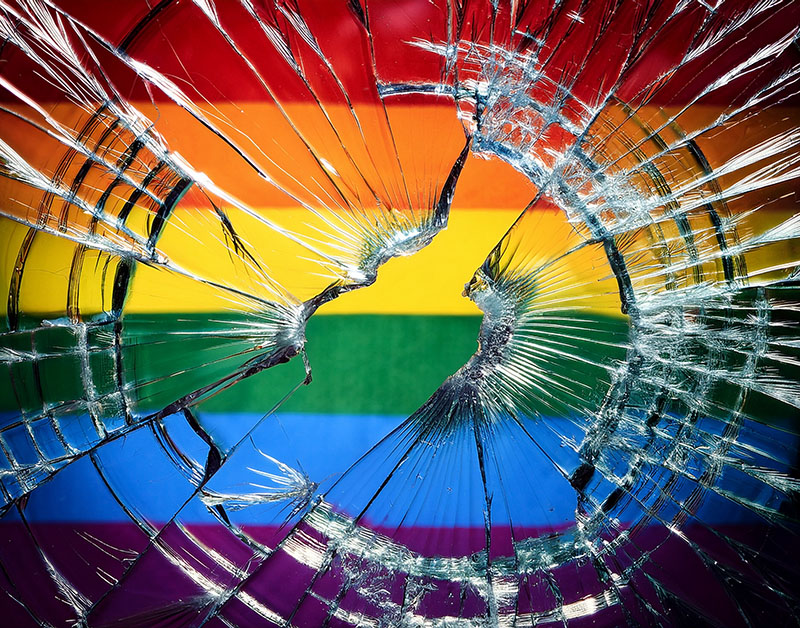Caribbean Court Strikes Down St. Lucia Gay Sex Ban
Court ruling is the fourth win for advocates challenging anti-gay laws across five Caribbean nations.

On July 29, the Eastern Caribbean Supreme Court struck down two sections of St. Lucia’s criminal code that banned “buggery” and “gross indecency,” ruling the laws unconstitutional. The court found that criminalizing private, consensual acts violated fundamental rights to privacy, equality, and liberty guaranteed by St. Lucia’s constitution.
Although rarely enforced, the laws carried penalties of up to 10 years in prison. Civil rights advocates argued that their continued existence endangered the LGBTQ community, leaving members vulnerable to harassment, abuse, and violence.
Similar colonial-era anti-sodomy laws elsewhere in the Caribbean have been used to target and jail LGBTQ people, particularly gay and bisexual men.
The Eastern Caribbean Alliance for Diversity and Equality (ECADE), a network of local rights groups that brought the challenge, called the ruling the fourth legal victory of its kind in the region.
“This is a monumental step forward for St. Lucia and the entire Caribbean,” said Kenita Placide, ECADE’s executive director, in a statement. “The court’s decision finally affirms that our rights to privacy, dignity, and equality must be respected and protected.”
Raise Your Voice St. Lucia, a pro-LGBTQ nonprofit, celebrated the ruling as a “beacon of hope amid recent setbacks.”
The LGBTIQ advocacy group Outright International also praised the decision.
“At a time of rising global hostility, this decision makes clear that discriminatory laws have no place in any society and that human rights must prevail,” said the group’s executive director, Maria Sjödin.
The Eastern Caribbean Alliance for Diversity and Equality filed five legal challenges in 2019 against laws criminalizing same-sex activity in St. Lucia, Antigua and Barbuda, Barbados, Saint Kitts and Nevis, and Grenada. Courts in Antigua and Barbuda, Barbados, and Saint Kitts and Nevis struck down their laws in 2022, while a court in Dominica — where ECADE had not filed a challenge — struck down the country’s anti-sodomy law in 2024.
Last year, however, a top court in St. Vincent and the Grenadines upheld the country’s law criminalizing same-sex relations. In Trinidad and Tobago, the nation’s highest court this year reversed a 2018 ruling that had struck down its anti-sodomy law, reinstating the statute on the grounds that only Parliament — not a judge — can overturn a law, even if deemed unconstitutional.
Along with Trinidad and Tobago and St. Vincent and the Grenadines, only three other Caribbean nations still criminalize same-sex relations: Jamaica, Grenada, and Guyana.
Members of the LGBTQ community have fled those five nations following violent attacks. One notorious 2021 case in Jamaica involved three men who lured another man through a fake gay dating app profile, then restrained and robbed him, forcing him to transfer money before dousing him in rum, partially severed his penis, and set him on fire.
Support Metro Weekly’s Journalism
These are challenging times for news organizations. And yet it’s crucial we stay active and provide vital resources and information to both our local readers and the world. So won’t you please take a moment and consider supporting Metro Weekly with a membership? For as little as $5 a month, you can help ensure Metro Weekly magazine and MetroWeekly.com remain free, viable resources as we provide the best, most diverse, culturally-resonant LGBTQ coverage in both the D.C. region and around the world. Memberships come with exclusive perks and discounts, your own personal digital delivery of each week’s magazine (and an archive), access to our Member's Lounge when it launches this fall, and exclusive members-only items like Metro Weekly Membership Mugs and Tote Bags! Check out all our membership levels here and please join us today!





















You must be logged in to post a comment.